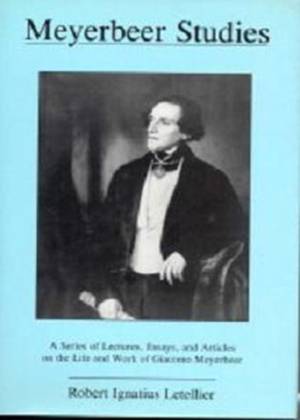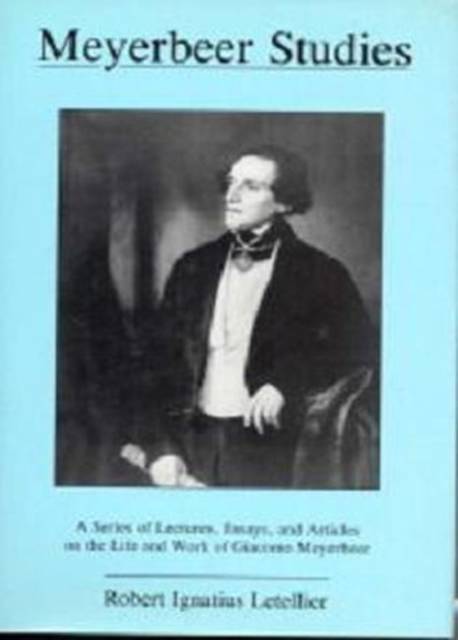
- Afhalen na 1 uur in een winkel met voorraad
- Gratis thuislevering in België vanaf € 30
- Ruim aanbod met 7 miljoen producten
- Afhalen na 1 uur in een winkel met voorraad
- Gratis thuislevering in België vanaf € 30
- Ruim aanbod met 7 miljoen producten
Zoeken
Omschrijving
This collection of essays investigates the life and the work of Giacomo Meyerbeer, the most famous exponent of French grand opera. They are both introductory and exploratory, biographical, analytical, and comparative studies in the achievement of this great figure of musical history. n 1936 Meyerbeer's opera Les Huguenots achieved its 1,120th performance at the Paris Opera. This extraordinary record is an indication of the vast fame and influence of its composer who was once a household name, like Verdi or Puccini. Now he is unknown to the ordinary opera lover. These essays represent something of an odyssey to seek out and know the shadowy figure behind so much divided opinion and long neglect. They represent attempts, at various stages over thirty years, to find Meyerbeer and enter the world of his remarkable operatic creations that once so characterized the musical life of European civilization. The first chapter is a basic introduction to Meyerbeer's career and some of the characteristics of his musical language. His great dramatic power, melodic richness, and famed orchestral virtuosity are all considered, as represented in his most famous opera, Les Huguenots. Other essays look at aspects of his life, especially in the light of his personal papers that have been opened up to the world since the early 1960s. The second set of studies endeavors to understand Meyerbeer's major operas in some kind of intellectual framework, and in relation to one another. Meyerbeer's six French operas helped to define the classic genres of grand opera and opera comique. A representative of each of these types is explored, analyzing origins, literary elements, and musical style. The composer's first opera comique, L'Etoile du Nord (1854), is a work of surprising complexity and invention that pays tribute to a long tradition of beloved operatic conventions in a most original way. L'Africaine (1865) was the swansong of his career and a valediction to the classic form that h
Specificaties
Betrokkenen
- Auteur(s):
- Uitgeverij:
Inhoud
- Aantal bladzijden:
- 238
- Taal:
- Engels
Eigenschappen
- Productcode (EAN):
- 9781611473056
- Verschijningsdatum:
- 1/06/1995
- Uitvoering:
- Hardcover
- Formaat:
- Genaaid
- Afmetingen:
- 167 mm x 244 mm
- Gewicht:
- 535 g

Alleen bij Standaard Boekhandel
+ 195 punten op je klantenkaart van Standaard Boekhandel
Beoordelingen
We publiceren alleen reviews die voldoen aan de voorwaarden voor reviews. Bekijk onze voorwaarden voor reviews.











